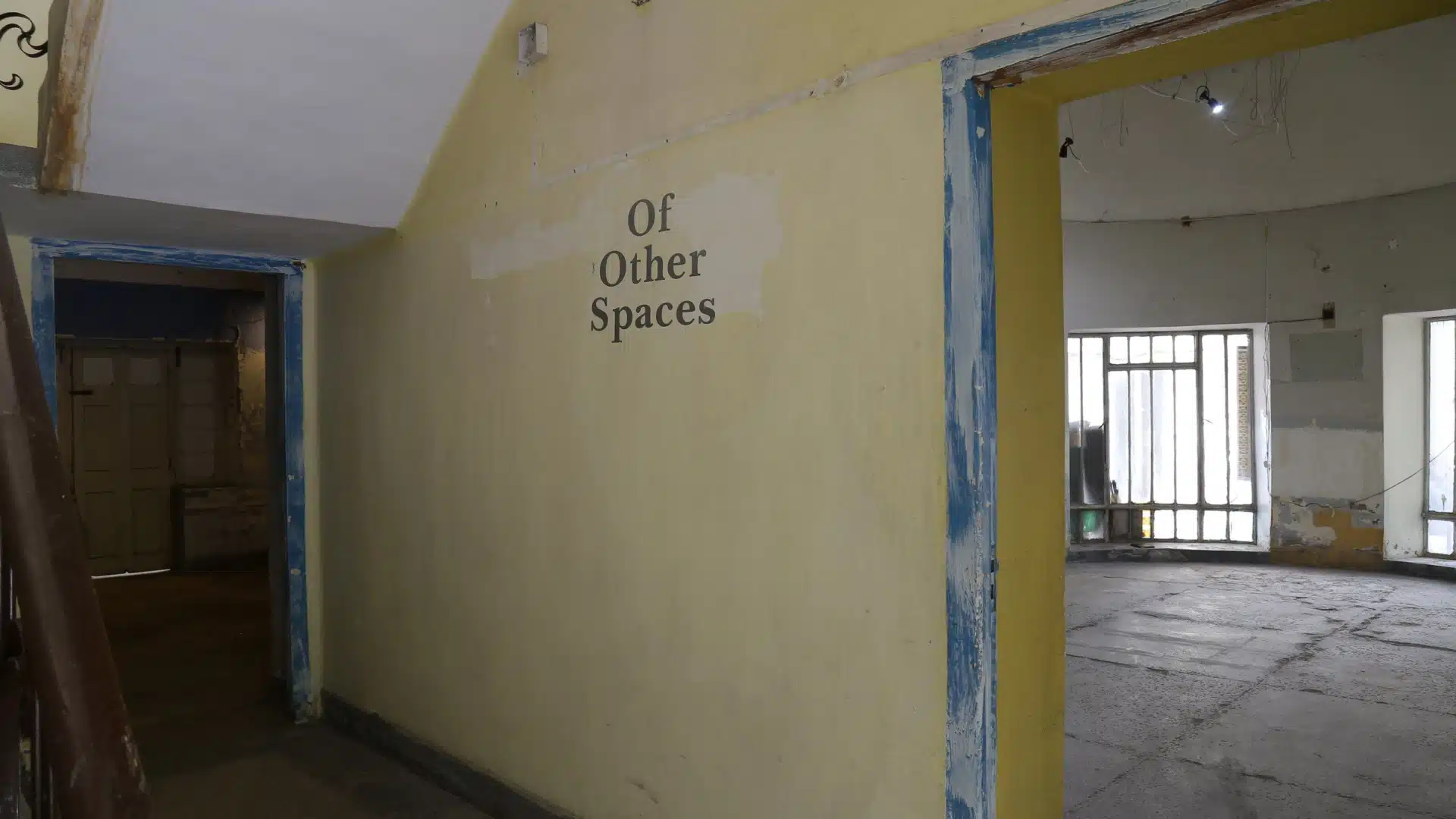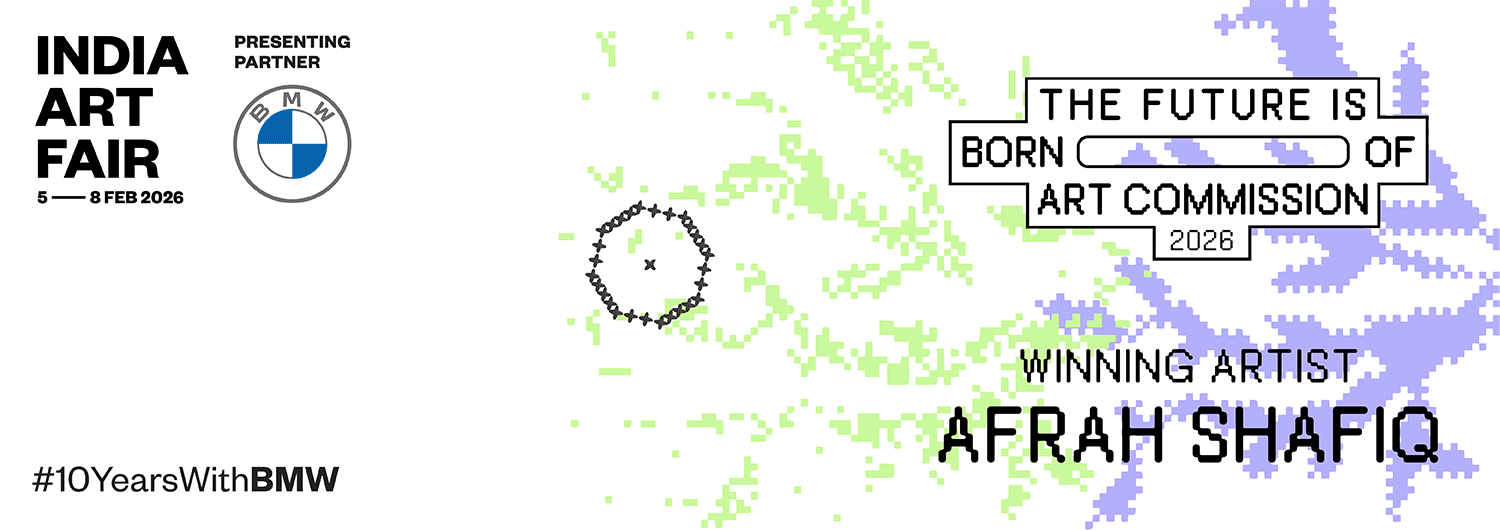What are the urgencies felt by curators today based in Bangladesh, India, Pakistan and Sri Lanka? What are the commonalities and what are the differences? This panel features institutional and independent voices marking the diversity of positions on what in each of their views constitutes curatorial practice. This panel will be moderated by Samira Bose, and will feature Annalisa Mansukhani, Sarker Protick, Natasha Malik, and Pramodha Weerasekera.
The session will take place from 5pm – 6:25pm (New Delhi/Colombo) | 5:15pm – 6:40pm (Kathmandu) | 4:30pm – 5:55pm (Islamabad) | 5:30pm – 6:55pm (Dhaka). To register and join, click here.
ABOUT THE SPEAKERS
Samira Bose is a curator and writer based in New Delhi. She is the Programmes Coordinator at Asia Art Archive in India, where, together with colleagues, she activates AAA’s archival collections through discursive programmes, workshops and exhibitions. Bose is interested in investigating improvised infrastructures, construing speculative methodologies and initiating artistic interventions within archives and libraries. These current pursuits are partially informed by her involvement in Mobile Library: Nepal 2020-2021, through which she led a series of Inter-Archives Conversations focusing on the specific urgencies of archives located in South Asia. She completed her Masters in Arts & Aesthetics at Jawaharlal Nehru University, New Delhi.
Annalisa Mansukhani is a writer, researcher and curator studying histories of photography and notions of the archive in contemporary art and curatorial practices. She has previously worked at the Kochi Biennale Foundation, and is one of the recipients of the first Critical Collective – PhotoSouthAsia Young Writers Award for lens-based practices. Annalisa is a contributing writer for ASAP | art where she dissects possibilities of the photographic in contemporary inter-media practices. As the Programmes Manager for the Foundation for Indian Contemporary Art (FICA) in New Delhi, she establishes frameworks and activates resources around art and education, curating, research, and public programming. Writing alongside image and verse, she is currently fascinated by evolving vocabularies of imaging trauma and violence in art.
Sarker Protick has developed a practice that combines the roles of an image-maker, a teacher and infrequently a curator. His works revolve around the subjects of temporality, materiality of time and the metaphysical prospects of Light and Space. Working with photography, video and sound, Protick has formed a series of works that are built on long-term surveys rooted in Bangladesh, while simultaneously exploring ideas that blurs the notion of geopolitical boundaries. He has exhibited in museums, galleries and festivals including Singapore International Film Festival (SGIFF), Yokohama Triennale, Hamburg Triennale, Paris Photo, Dhaka Art Summit, 4A Center of Contemporary Asian Art, Kunst Haus Wien, Noor der licht, Singapore Art Week, Art Dubai and more. Sarker Protick is a faculty member of Pathshala South Asian Media Institute and Co-curator at Chobi Mela International Festival of Photography.
Natasha Malik is an artist and curator currently based out of Islamabad, Pakistan. Malik received her BFA from the National College of Arts, Lahore in 2012, and her MFA from the Slade School of Fine Art, London, in 2015. She is the founder of The Creative Process, an artistic platform working across the intersections of site-specific curatorial projects and activism from a feminist point of view. In 2017, Malik curated Of Other Spaces, followed by River in an Ocean, an exhibition co-curated with artist-curator, Abdullah Qureshi, as a collateral event of the Lahore Biennale 2018. Unmaking History, a group exhibition co-curated with Saher Sohail and Laila Rahman, took place at the Research and Publication Centre in Lahore in 2019.
As an artist, Malik explores female identity and sexuality developed within the constraints of patriarchy. She has had solo shows at Sanat Gallery in Karachi and at Satrang Art Gallery in Islamabad.
Pramodha Weerasekera is based in Colombo, Sri Lanka. She has an interdisciplinary educational and professional background in literary studies, visual cultures, and law. Her research interests mainly lie in discussions pertaining to literary theory, justice, gender, and visual cultures. She is an avid reader who believes in knowledge creation through the arts, as well as the power of language and art in terms of capturing intricate emotional responses to life. She writes in an independent capacity and has been working at the Museum of Modern and Contemporary Art Sri Lanka as Assistant Curator Education and Public Programmes since 2019.
ABOUT STAGING THE CONTEMPORARY
‘Staging the Contemporary: The Next Generation’ is a two-day symposium and knowledge platform presented by India Art Fair and Ishara Art Foundation and is supported by Shiv Nadar University. The symposium aims to bring together the next generation of artists, curators, collectives and writers working in South Asia to deliberate on the urgencies, methodologies and infrastructures that lay new foundations for cultural practices today.



